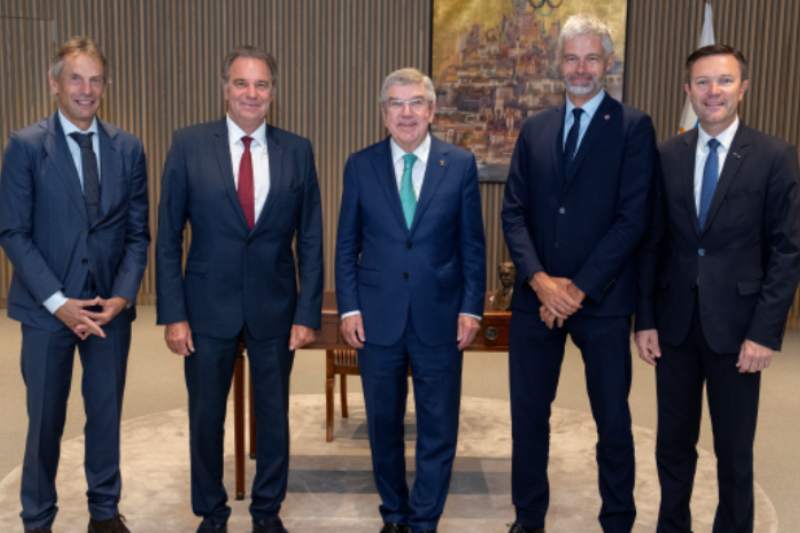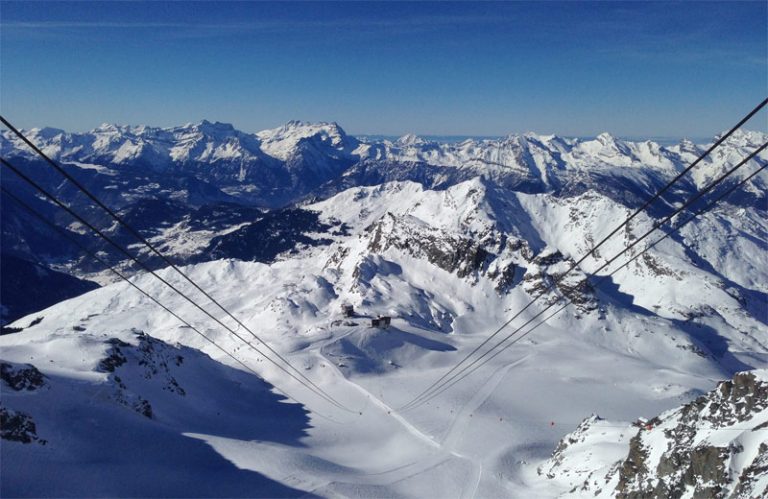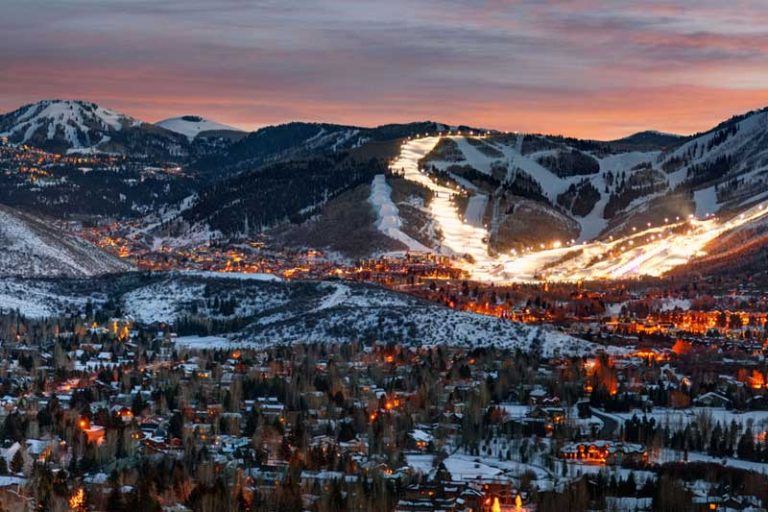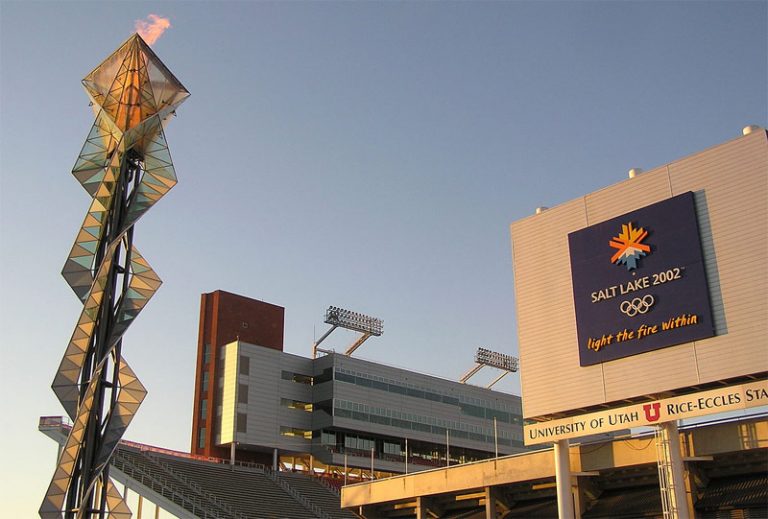France took a bold step Thursday in its campaign to bid for the 2030 Olympic and Paralympic Games when a high level delegation of stakeholders arrived at International Olympic Committee (IOC) headquarters in Lausanne, Switzerland to present hosting plans and meet with President Thomas Bach.

In July the French Olympic Committee (CNOSF) launched the joint bid between Auvergne-Rhône-Alpes and Provence-Alpes-Côte d’Azur in the French Alps and immediately entered the IOC’s continuous dialogue phase that allows interested regions to explore hosting options without making any commitments. The meeting Thursday showed the bid has strong multi-level support.
Attending the meeting were CNOSF President David Lappartient, French Paralympic Committee (CNOSF) President Marie-Amélie Le Fur, regional presidents Renaud Muselier of Provence-Alpes-Côte d ‘Azur and Laurent Wauquiez of Auvergne-Rhône-Alpes. French IOC members and Olympians Guy Drut and Martin Fourcade were also on hand for the review that marked an important step forward for the bid.
A translation of the statement released by the CNOSF read “the bid team had the opportunity to clarify that the French vision of the organization of the Games must be at the service of the host territories, which benefit from an exceptional environment to host this event.”
“All present who work in consultation on the different modalities of the candidacy file, with the support of the French State, were able to reaffirm their unity in the service of the Olympic and Paralympic sports movement and in the service of the organization of Sustainable and innovative games are part of the essential changes desired by the IOC and the dynamics of the Paris 2024 Games.
“Joint work, involving all stakeholders in close collaboration with the IOC, will continue in the coming weeks to share the vision and organize the master plan for the French Alps’ candidacy for the 2030 Winter Games in order to make it a fabulous moment of emotion, celebration of sport, athletes, the Olympic values of excellence, friendship and respect, promoting peace.”
Earlier this week French Olympic biathlon champion Vincent Jay was named project director for the bid, further showing that the campaign is developing quickly.
France, already preparing to host the Summer Games next year in the capital, is the most recent entry in the 2030 race that has been delayed since the IOC paused the campaign last December to explore the impact of climate change on Winter Games hosts. Last year 2030 applicants included four First Nations in Canada’s British Columbia who stepped back after failing to win government funding for the project; a joint Spanish bid from Barcelona and the Pyrenees that later cancelled plans due to political disagreements; and a promising project from Sapporo that dissolved after the Tokyo 2020 corruption scandal made headlines in Japan tarnishing public support.
This year new European bids materialized including interest from Sweden and a possible national campaign from Switzerland.
Salt Lake City is also involved in the IOC’s continuous dialogue, but U.S. officials are targeting 2034 and will only consider 2030 if no other options are available to the IOC.
There is no set timetable for the election of the 2030 host. The IOC’s Future Host Commission will recommend one or more regions for targeted dialogue if they find mutual opportunities with well-supported projects, and those will appear on an election ballot at the next all-members Session. The IOC’s latest projection had “preferred hosts” named at an Executive Board meeting scheduled for December and the final member vote taking place in Paris next year at a Session just days ahead of the Olympic Games.
However, if the French Alps are included in targeted dialogue the vote would have to take place another time since the Olympic Charter forbids host region votes from taking place in the territory of one of the candidates.
When France declared its candidacy earlier this year Romanian IOC member Octavian Morariu was was forced to step down as chair of the Future Host Commission for the Winter Games due to IOC conflict-of-interest rules because he is also a French national. Karl Stoss of Austria took over the important role.
The Swedish bid claims it will complete the development of its project by December and the Swiss bid has similar goals.
IOC Executive Director Christophe Dubi has said there are currently six regions discussing “future winter bids” including the three that are now actively campaigning, Salt Lake City for 2034 and dropouts Sapporo and British Columbia who could be targeting 2034 or beyond.
Winter Games capable regions are motivated to engage with the IOC now on future Games even if there is no interest in the next unallocated edition in 2030. The IOC is setting criteria to identify climate capable sites and the Future Host Commission will consider selecting a permanent pool of viable Winter Games hosts and could start that off with a simultaneous awarding of the 2030 and 2034 Games.
France has hosted the Winter Games three times, in Chamonix in 1924, Grenoble in 1968 and Albertville in 1992. The nation’s last bid for the winter edition was defeated in embarrassing fashion when Annecy won only seven of a possible 95 votes on the way to PyeongChang’s convincing win over second place Munich.
The next Winter Games will be staged by Milan-Cortina 2026 in Italy.


